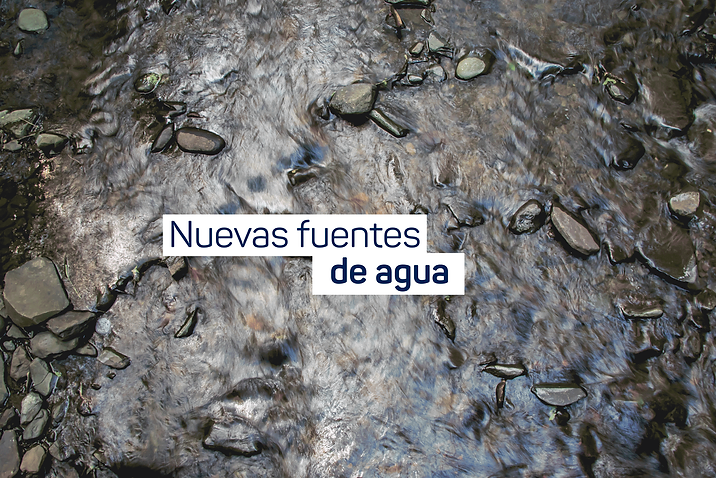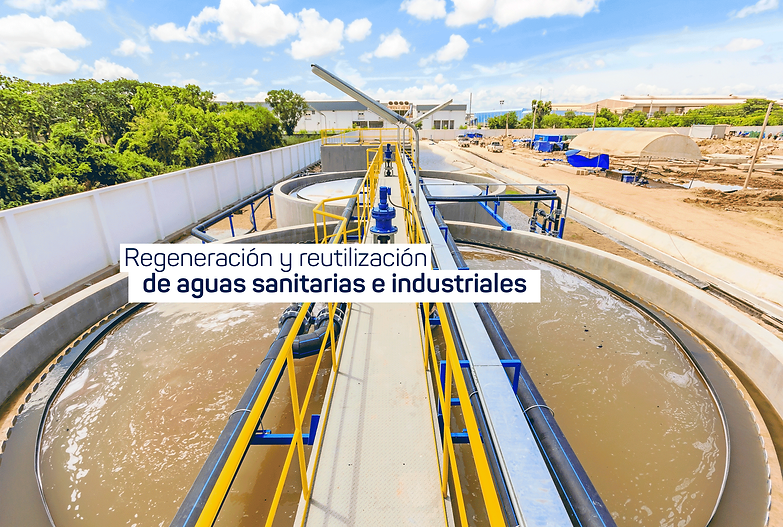Our lines of action
The Technological Consortium of Water has five lines of action where a portfolio of 13 initial applied research and technological developments projects is currently being developed, to which 19 new projects have been added according to the gaps detected. The objectiv of the dynamic portfolio is to make available and visible technological solutions that allow progress in the effective, efficient and sustainable managment of water resources, inserting them into the market and implementing them, taking into account the magnitude of the problem, the sector, and the territorial and envionmental singularity in which it's located.

Integrated information
management
The information about water resources in the country is dispersed and in heterogeneous formats, making it difficult to collect and process. The lack of an integrated national platform and a common computational architecture hinders data management. In addition, gaps in water quality information hinder the improvement of water governance. It's crucial not only to have water data, but also to endure its quality and accessibility to facilitate effective policy development at basin and national levels.
Learn more about the projects:
Water resources information integration
platform.
Groundwater quality monitoring platform.
Surface water quality monitoring platform.
Platform for water quality and biosafety.
The agriculture, highly affected by climate change, faces challenges such as the migration of crops to the south and the scarcity of water for irrigation. To improve irrigation efficiency, real- time monitoring of parameters such as soil moisture and flow rate is essential.
Learn more about the projects:
Evaluation of efficiency and irrigation operation.
Phone application for irrigation scheduling and management.
Training of human capital for the management of water resources.
Agrivoltaic system for a cherry orchard in the Maule region.

Water
efficiency


Quality
and sanitation
Improve real-time monitoring of water availability and quality is essential. The presence of contaminats, both natural and anthropogenic, affects the suitability of water for human consumption and agriculture. However, current measurements are not frequent enough to understand the processes that affect water security, highlighting the need to address this challenge for more effective management of the resource.
Learn more about the projects:
Groundwater quality monitoring platform.
Surface water quality monitoring platform.
Platform for water quality and biosafety.
Microbiome: tool for epidemiological surveillance and measurement of microbiological quality in inland waters.

In the face of current and future water scarcity, it's vital to explore new sources of water to meet human, agriculture and industrial demands. Atificial recharge of aquifers and desalination of seawater and brackish water in coastal areas emerge as promising solutions to mitigate water shortages and ensure water quality.
Learn more about the projects:
Desalination of seawater by nanofiltration.
Groundwater recharge
Regulatory feasibility of alternative water sources.

New water
sources


Regeneration and reuse
of sanitary and industrial water
Currentrly, the level of domestic and industrial water reclamation and reuse is low, with graywater reused without consideration of its diversity and quality, and a lack of understanding of critical treatment parameters. However, continuous wastewater represents a potential source of water for uses such as agriculture. Developing alternatives for reuse and valorization of industrial waste could improve waste management and offer opportunities for businesses.
Learn more about the projects:
Tertiary tretament of sanitary and industrial water.
Cost-effectives technologies for water treatment.
Regulatory feasibility of alternative water sources.